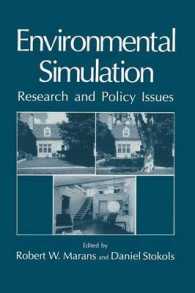Full Description
For six weeks in 2012-13, Attawapiskat chief Theresa Spence undertook a high-profile ceremonial fast to advocate for improved Canadian-Indigenous relations. Framed by the media as a hunger strike, her fast was both a call to action and a gesture of corporeal sovereignty.
Life against States of Emergency responds to the central question she asked the Canadian public to consider: What does it mean to be in a treaty relationship today? Arguing that treaties are critical and vital matters of environmental justice, Sarah Marie Wiebe offers a nuanced discussion of the political environment that caused treaty relations in Attawapiskat to break down amid a history of repeated state-of-emergency declarations.
This incisive work draws on community-engaged research, lived experiences, critical discourse analysis, ecofeminist and Indigenous studies scholarship, art, activism, and storytelling to advance a transformative, future-oriented approach to treaty relationships. By centring community voices, Life against States of Emergency cultivates a more deliberative, democratic dialogue.
Contents
Foreword: Nanabush and the Emergence of Butterflies / Lindsay Keegitah Borrows
Preface
Introduction: "You Are Treaty, Too"
1 Artistic Movements for Alternative Decolonial Futures
2 Creative Engagement through Mixed Media Storytelling
3 Chief Spence's Story
4 Community Voices: Reimagining Attawapiskat
5 Discursive Responses to Attawapiskat, Chief Spence, and the Hunger Strike
6 Treaties Are Alive
7 Fleshing Out New Directions for Environmental Justice
Afterword: Emergency Feelings - Reflections on the Body Politics of Sudden and Slow Emergencies
Appendices; Notes; Bibliography; Index








